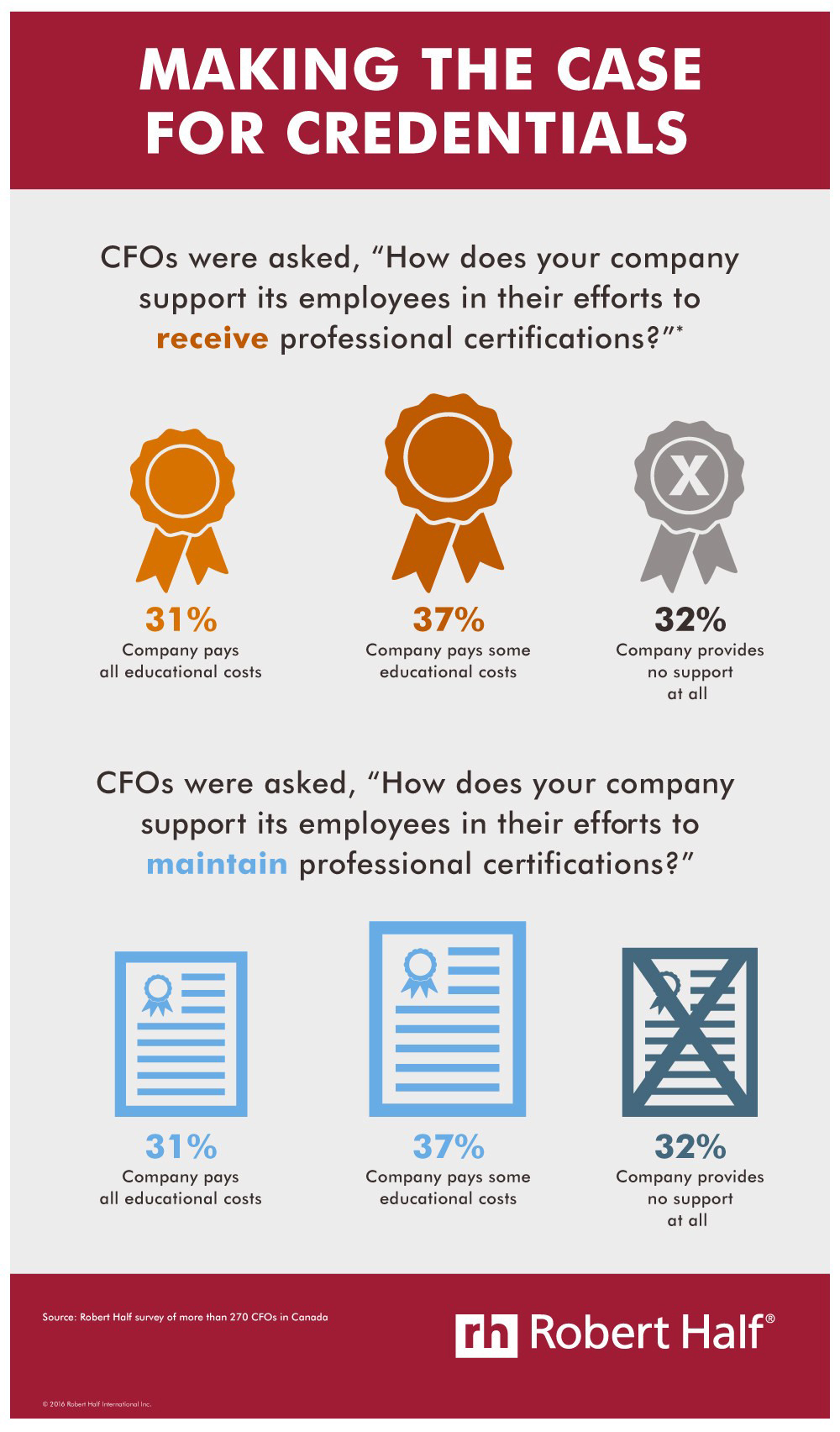A study conducted by Robert Half, the world’s largest specialized staffing firm, has examined how and why companies are covering employee credential costs. Greg Scileppi, President of Robert Half’s International Staffing Operations, claims that providing and supporting ongoing training benefits company and employee productivity.

“Many employers support ongoing training because they’re aware of how valuable well-educated professionals, with up-to-date knowledge of industry trends, are to the successful evolution of business,” he said. “For workers, keeping skills current is essential for career advancement.”
Employees with specialized certifications display strong initiative and loyalty to the company.
“Obtaining an industry-specific designation demonstrates commitment, and a willingness to take on new challenges and adapt to changing business needs,” Scileppi added.
So, while 31 per cent of companies cover all educational costs and 37 per cent cover a portion, why does that leave almost a third of Canadian companies not providing any support at all?
Robert Half encourages managers to consider the following before dismissing training and certification support.
- Preparing for the future: Training helps prepare employees for leadership positions. Employees with the initiative to expand their skills could be excellent contenders to consider when planning your succession.
- Immediate benefits: Many certifications will directly influence productivity, revenue and responsibilities.
- Two for the price of one: The cost for one employee to receive training can allow them to teach and mentor others within the organization
- Dividing the cost: Many employees will be willing to cover a portion of the fees themselves if they feel it will make them a better candidate for future opportunities.

